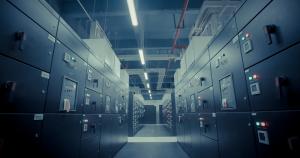Ireland formalises policy rules on data centres
 Irish premier Michael Martin has sought to clarify the government's position on datacentres, after it imposed emergency restrictions on their construction. The measures were brought in last year after planning errors meant that the country's electricity grid was unable to cope with supporting what is Ireland's fastest-growing industry.
Irish premier Michael Martin has sought to clarify the government's position on datacentres, after it imposed emergency restrictions on their construction. The measures were brought in last year after planning errors meant that the country's electricity grid was unable to cope with supporting what is Ireland's fastest-growing industry.
Irish Prime Minister Michael Martin has recently moved to mitigate concerns over the policy, insisting that the measures are temporary and do not amount to a moratorium on datacentre construction. It is thought that the temporary measures will also enable cloud corporations to begin utilising technologies to mitigate their electricity demand, such as electric battery power systems.
Firms including Hitachi and Microsoft have been developing such battery systems, with Taoiseach Martin saying that Hitachi had lobbied for an end to the ban on datacentre construction, saying its battery systems were ready to deploy.
Last year, a series of factors contributed to the country's grid falling 2,000 megawatts short of electricity generating capacity. The rapidly growing data industry in Ireland has also created fierce competition among developers for both land and contracts reserving capacity on the electricity grid.
This competition has led to both government officials and cloud companies branding developers as "speculators" who had created an artificial power crisis by securing grid capacity contracts in the hope of subletting it to cloud firms. Developers were said to be holding grid capacity that they weren't using, with firms that wanted to use it being told they could not.
A consultation on the moratorium last year was told that there was no crisis caused by datacentres, but rather one of deficient supply and mismanagement of the electricity grid. The issue was further underscored by the news that datacentres use just 25 per cent of their reserved grid capacity, with the majority of power held in reserve.
According to figures from Bitpower, cloud corporations hold around three-quarters of Ireland's grid capacity, with the rest held by wholesale companies which are reported to typically sell their capacity on to cloud corps. Since the measures were introduced, around 30 applications to reserve power for potential datacentres have been rejected by EirGrid.
The issue is further complicated by the fact that datacentres can take around ten years to build once grid capacity reservation has been secured, meaning companies are often unable to use the capacity they have reserved. Cloud corporations have reportedly told Ireland's Commission for Regulation of Utilities (CRU) that reforms should be introduced to penalise firms for holding capacity but not using it quickly.
Looking forward, Ireland is pushing ahead with plans to increasingly use renewable energy, with the aim of generating 80 per cent of supply from renewables by 2030. Discussing the temporary ban on datacentre construction, Michael Martin said that policy would be in place for "two or three years", with the intention of giving the country's windpower industry the time to step up and meet demand.







